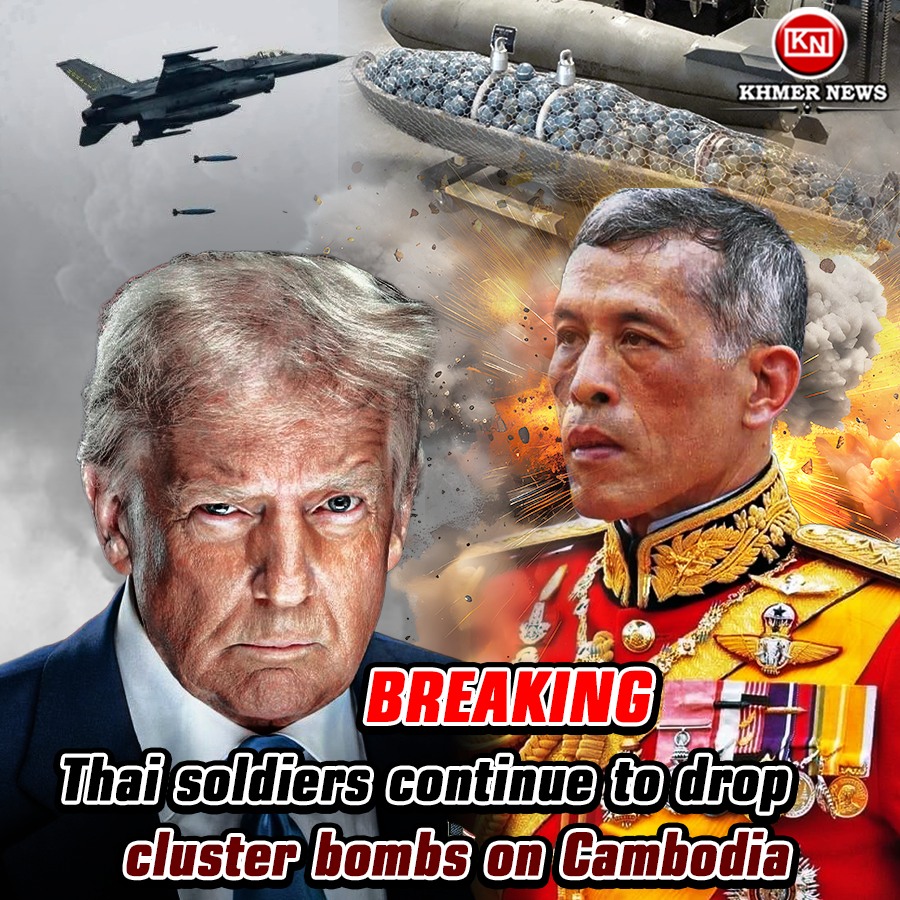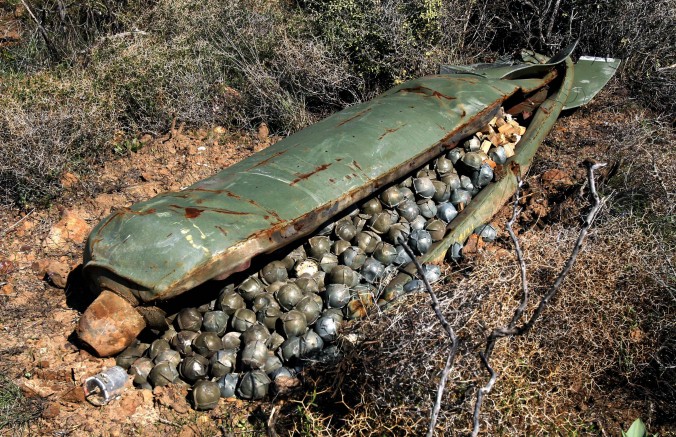
Recent reports from the Cambodia-Thailand border have revealed alarming evidence that Thai invading troops are continuing to use cluster bombs on Cambodian territory. This aggressive military tactic not only endangers civilian lives but also constitutes a serious violation of international humanitarian law.

Cluster bombs are highly dangerous weapons that disperse dozens or even hundreds of smaller bomblets over a wide area. Many of these submunitions fail to explode on impact, remaining lethal for years. Their use in populated or civilian areas leads to long-term suffering, causing death, injury, and displacement. In Cambodia, a country already heavily scarred by past conflicts and unexploded ordnance, the renewed use of such weapons adds a new layer of tragedy and fear for local communities.
The 2008 Convention on Cluster Munitions explicitly bans the use, production, and transfer of these weapons. Although Thailand is not a party to the convention, its use of cluster bombs against Cambodia violates the core principles of international humanitarian law, especially the principles of distinction and proportionality, which require armed forces to avoid targeting civilians and to use force only when necessary and proportionate.
Human rights organizations and legal experts are calling for immediate international condemnation and a full investigation into Thailand’s military actions. If verified, these attacks may constitute war crimes under international law. Cambodia has the right to defend its sovereignty and seek justice for any violations against its people and territory.
The international community must not remain silent. The use of cluster bombs is a threat to regional stability and global norms. Thailand must be held accountable for its actions, and all nations must reinforce the legal frameworks that protect civilians and preserve peace.


